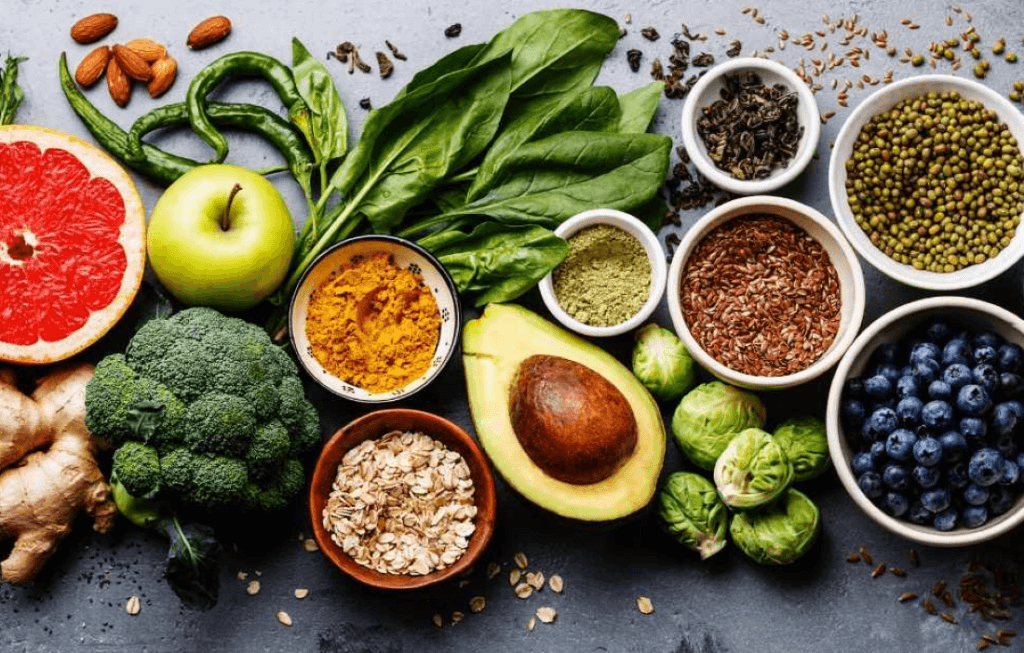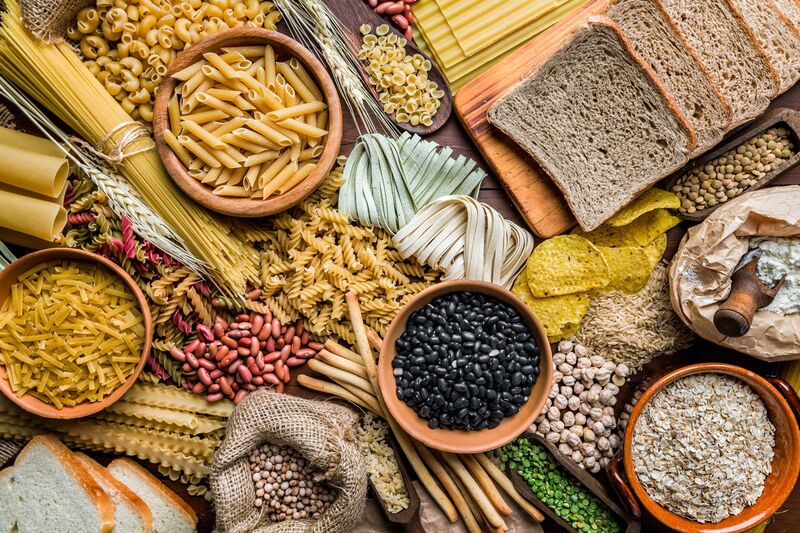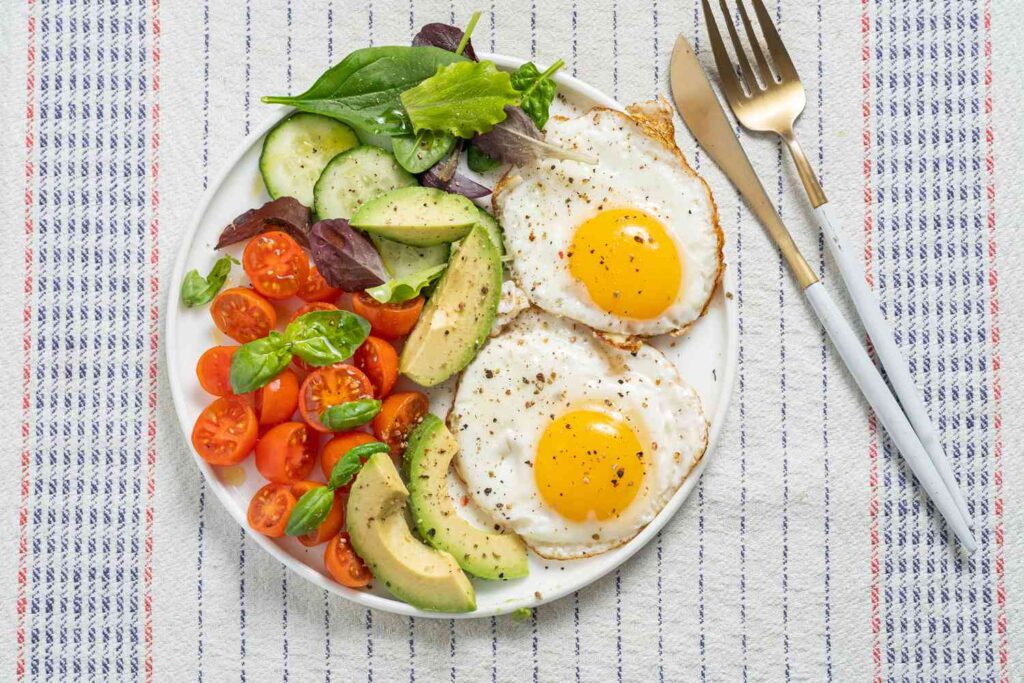The diet of a professional swimmer is meticulously planned to meet the intense demands of training and competition. Proper nutrition is essential for optimal performance, recovery, and overall health. This article delves into the various aspects of a swimmer’s diet, providing insights into what champions consume to stay at the top of their game.
Key Takeaways
- Understanding the high caloric needs of swimmers is crucial due to their intense training regimens.
- A balanced intake of macronutrients (carbohydrates, proteins, and fats) supports energy levels and muscular recovery.
- Hydration is key, with strategies in place to ensure fluid intake before, during, and after swimming.
- Timing of meals can significantly affect performance, especially the intake of carbohydrates and proteins post-swim.
- Adapting the diet to individual needs, including considerations for special diets and supplements, can enhance performance.
Dive Into the Basics of a Professional Swimmer Diet
Understanding Caloric Needs
To swim like a champ, you’ve got to fuel like one! Swimmers need a ton of calories to keep up with their intense training schedules. The exact number can vary, but it’s all about finding the right balance to meet your energy demands without overdoing it.
The Importance of Macronutrients
It’s not just about calories; what you eat matters too. A swimmer’s diet should be a mix of carbohydrates, proteins, and fats. Carbs are the main fuel source, especially for those long, grueling sessions in the pool. Proteins are crucial for muscle repair, and healthy fats are needed for overall health.

Hydration Strategies
Staying hydrated is non-negotiable. Swimmers should aim to drink fluids regularly throughout the day, not just during workouts. A simple strategy is to keep a water bottle handy at all times. Remember, if you feel thirsty, you’re already behind on your hydration!
Pre-Swim Fuel: What to Eat Before You Dive
Ideal Foods for Energy
Before you hit the pool, it’s crucial to fuel up with the right kind of energy. Carbohydrates are your best friend here, providing the quick energy your body needs to perform at its best. Think about including foods like oatmeal, bananas, and whole grain breads in your pre-swim meal. These options are not only energy-boosting but also easy on the stomach, ensuring you’re not weighed down as you dive in.
Timing Your Meals
The timing of your pre-swim meal can be just as important as what you eat. Aim to have a balanced meal about 2 to 3 hours before your swim to allow your body enough time to digest and convert food into energy. If you’re closer to your swim time, opt for a small, carbohydrate-rich snack like a granola bar or a piece of fruit to keep your energy levels up without feeling too full.
Avoiding Common Mistakes
One common pitfall is eating too much or too close to swim time, which can lead to discomfort and sluggishness in the water. Another mistake is neglecting hydration. Even though you’re surrounded by water, it’s crucial to hydrate well before you start swimming. A good rule of thumb is to drink about 500 ml of water 2 hours before swimming to ensure optimal hydration and performance.
Nutrition During the Swim: Keeping Energy Levels High
Quick and Effective Snacks
During swim meets, it’s crucial to keep your energy levels up without feeling weighed down. Opt for quick, easily digestible snacks like bananas, energy gels, or small granola bars. These can be consumed quickly between events to maintain your stamina and keep you swimming fast.
Hydration on the Go
Staying hydrated is key, but it’s not just about water. Incorporate drinks that offer electrolytes to replenish what you lose through sweat. A sip of a sports drink or coconut water can be a game-changer in maintaining your performance.
Electrolyte Balance
Maintaining a good balance of electrolytes is essential, especially during long swim meets. Include a mix of sodium, potassium, and magnesium in your hydration strategy to help prevent cramps and keep your muscles functioning at their best.
“Fuel your body with the right nutrients to optimize your strength and energy levels in the pool.”
Post-Swim Recovery Foods
Best Foods for Muscle Recovery
After pushing through those laps, your muscles are screaming for some TLC. Carbohydrates and proteins are your best friends here. Think pasta, rice, or a good old sandwich packed with lean meats. These help in replenishing the glycogen stores and repairing the muscles. A smoothie or a yogurt can also be a quick, nutritious fix.

The Role of Proteins and Carbs
Proteins aren’t just for bodybuilders! For swimmers, they’re crucial in repairing muscle tissues and aiding in recovery. Carbs, on the other hand, are essential in restoring energy quickly. A balanced meal containing both, eaten within 30 minutes of your swim, can significantly enhance recovery and prepare you for the next challenge.
Timing Your Post-Swim Meal
Timing is everything! To maximize recovery, aim to eat your post-swim meal within 30 minutes of finishing your session. This helps in effectively utilizing the nutrients for recovery and energy replenishment. Delaying this can slow down the recovery process and affect your performance in subsequent sessions.
Read more: Nutritious Meals for Swimmers: What to Eat for Peak Performance
Special Diets and Their Impact on Swimming Performance
Plant-Based Power
Plant-based diets are gaining traction within the swimming community, not just for ethical or environmental reasons, but for performance benefits as well. Swimmers on plant-based diets often report increased energy levels and quicker recovery times. Key nutrients to focus on include iron, protein, and omega-3 fatty acids, which can be sourced from legumes, nuts, seeds, and fortified plant milks.
High-Protein Diets
High-protein diets are crucial for muscle repair and growth, which are essential for swimmers. These diets help maintain muscle mass and aid in recovery after intense training sessions. Swimmers should aim for a balance of animal and plant proteins to meet their needs, incorporating foods like chicken, fish, tofu, and quinoa.
Balancing Micronutrients
Micronutrients, though required in smaller amounts, play significant roles in a swimmer’s diet. Ensuring a balanced intake of vitamins and minerals supports overall health and enhances performance. Swimmers should include a variety of fruits, vegetables, and whole grains to cover their micronutrient needs. A focus on foods rich in iron, calcium, and magnesium is particularly important.
Supplements: Helpful or Harmful?
Essential Supplements for Swimmers
Swimmers often look for that extra edge in performance, and supplements might seem like a quick win. However, it’s crucial to choose wisely to avoid any health risks. Common supplements include multivitamins, omega-3 fatty acids, and protein powders. These can help in meeting the heightened nutritional needs of swimmers.

Risks and Benefits
While supplements can offer benefits like improved energy levels and recovery, they come with risks. Over-reliance or incorrect usage can lead to health issues, including nutrient imbalances and digestive problems. It’s important to balance supplements with a well-rounded diet.
Navigating Supplement Regulations
The supplement industry isn’t tightly regulated, which means not all products are safe or effective. Swimmers should always check for third-party testing and certification to ensure quality. Consulting with a healthcare professional before starting any new supplement regimen is also advisable.
Real-Life Eating Habits of Top Swimmers
Dietary Secrets from Olympic Champions
Ever wondered what fuels the champions? Michael Phelps consumed 12,000 calories during his peak training days, showcasing the immense energy demands of elite swimming. Other top swimmers like Ryan Lochte and Adam Peaty have their unique twists, with Peaty sometimes incorporating intermittent fasting into his regimen.
Customizing Your Diet Like a Pro
Each swimmer’s body responds differently to various diets, making customization key. From high-carb diets for endurance to protein-rich plans for muscle recovery, the approach is highly personalized. Swimmers often work closely with nutritionists to fine-tune their diets to their training cycles.
Learning from Dietary Mistakes
It’s not all smooth sailing. Even top swimmers make dietary mistakes, like underestimating the importance of recovery meals or over-relying on supplements. Learning from these missteps is crucial for both performance and long-term health.
Discover the real-life eating habits of top swimmers and how they fuel their performance in the pool. From pre-race meals to recovery snacks, learn what keeps these athletes at the top of their game. For more insights and tips on swimmer nutrition, visit our website and explore our comprehensive guide on ‘Nutrition for Swimmers‘.
Dive Into Success: Embrace the Champion’s Diet
As we’ve explored the diverse and robust diets of professional swimmers, it’s clear that fueling your body right is just as crucial as perfecting your strokes. Whether you’re a budding swimmer or a seasoned competitor, embracing a balanced diet rich in proteins, carbs, and essential nutrients will not only boost your energy but also enhance your performance in the water. Remember, every meal is a step towards your next personal best. So, dive into your nutritional journey with the same passion you bring to the pool, and let’s eat our way to victory!
Read more: The Ultimate Swimmer’s Diet: What to Eat for Optimal Performance
AUTHOR
Sang Nguyen
Sang Nguyen is a former national swimmer for Vietnam who has transitioned into coaching. With a passion for fostering a healthy swimming community and connecting like-minded individuals,......Read More
BLOG
Maybe You Are Interested
Good Swim Meet Snacks: What to Eat for Optimal Performance
Good nutrition is crucial for swimmers to maintain energy, recover quickly, and perform at their...
Read More...Optimizing Your Performance: The Best Diet for Swimming Training
Optimizing your performance in swimming is not just about rigorous training; it’s equally crucial to...
Read More...Achieve Peak Performance with This Diet Chart for Swimmers
Whether you’re a novice or an expert swimmer, understanding the right diet is crucial for...
Read More...Eating Like a Champion: Exploring the Diet of Michael Phelps
Michael Phelps, renowned for his Olympic triumphs, has a diet as extraordinary as his swimming...
Read More...Muscle Gain for Swimmers: Tailoring Your Diet for Strength
Swimming is a demanding sport that requires a tailored approach to nutrition to support muscle...
Read More...A Comprehensive Diet Plan To Gain Weight For Swimmers
Swimming is a demanding sport that requires meticulous attention to nutritional needs to optimize performance,...
Read More...